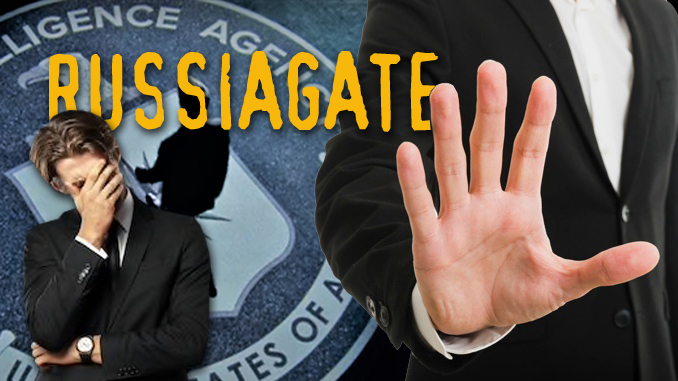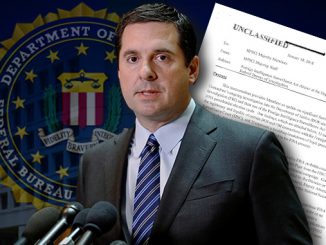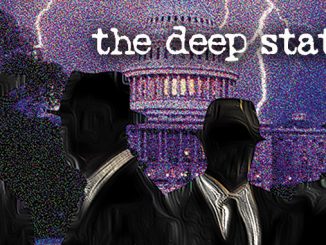
The Agency is concerned declassification of Russiagate-related documents could expose its political agenda.
By Donald Jeffries
A June 30 article by Shane Harris, The Washington Post’s successor to longtime CIA crony George Lardner, reveals that the agency is anxious over the pending declassification of documents associated with the Russian collusion investigation.
The article focused on Joseph Mifsud, a Maltese professor who supposedly introduced Trump foreign policy aide George Papadopoulos to a woman falsely claiming to be Vladimir Putin’s niece and a man allegedly tied to the Russian foreign ministry. Mifsud would further allege that the Russians had “thousands of emails” containing “dirt” on Hillary Clinton.
Harris, who is also known to be close to former FBI director James Comey, stressed the theme that Papadopoulos was an intermediary between the Trump campaign and Russia, promoting the idea that Mifsud could easily have been seen as an influential Russian connection, if not a Russian intelligence agent. In the Post article, Harris and two fellow reporters noted: “In Mifsud’s absence, a number of President Trump’s allies and advisers have been floating a provocative theory: that the Maltese professor was a Western intelligence plant. . . . They have promoted the idea that he was working for the FBI, CIA, or possibly British or Italian intelligence. . . . Officials familiar with U.S. intelligence reports told the Post that Mifsud had been identified by intelligence agencies as a potential Russian agent before he met Papadopoulos, an assessment drawn from reporting collected over several years.”
The same day Harris took to Twitter, hammering home the Deep State talking points on this subject. “Officials familiar with U.S. intelligence reports told the Post that Mifsud had been identified by intelligence agencies as a potential Russian agent before he met Papadopoulos, an assessment drawn from reporting collected over several years.” He continued: “So why did we spend so much time on this, and why should you care? Attorney General Barr is now investigating the FBI/Mueller probe of Russian election interference and connections to the Trump campaign. Mifsud was in essence the impetus for that investigation.”
Touting the editorial line of both his newspaper and the entire mainstream media, Harris claimed, “But there is no real evidence that Mifsud was working for the FBI, the CIA, or British intelligence, as has been variously alleged. And while it’s still unclear what role if any he played in the Kremlin’s 2016 campaign, Mifsud’s links to Moscow are real and verifiable.”
Harris called upon the usual Deep State sources in the Post article. “Multiple former intelligence officials in the United States and the United Kingdom said that theory does not make sense.” The article declared emphatically: “John Sipher, a former CIA officer who once ran the agency’s Russia operations, called the idea that Mifsud was a CIA asset who set up Papadopoulos ‘nonsense,’ noting that the CIA is not allowed to target Americans. Steve Hall, who retired in 2015 after 30 years running and managing Russian operations for the CIA, said that in counterintelligence, ‘You can almost never rule anything out completely.’ But he added that Mifsud’s known activities closely parallel longstanding Russian techniques of targeting academic institutions to spot possible recruits and gather information, making it more likely that Mifsud was working with the Russians than a Western intelligence agency.”
A July 1 analysis from Red State pointed out:
Their reasoning is risible. The idea that the CIA wouldn’t loan an asset to the FBI (this appears to have been the case with Stefan Halper, as we know [Andrew] McCabe flew to London to meet someone who seems a lot like Halper) is laughable on its face. . . . While the Russians do target academic institutions, so, too, do Western agencies. The role of professors as “talent spotters” for intelligence agencies, including the CIA, is well established. The 800-lb gorilla in the room that the Post slides right past is the fact that Mifsud’s primary academic affiliation is with Link Campus University in Rome. Its president is a former Italian interior minister and political and social conservative, and it is rumored, with as much backup proof as anything produced in this Post story, to be affiliated with a Western intelligence service.
Link President Vincenzo Scotti dismissed the notion that his school is a front for the CIA or any other Western intelligence service. “People say stupid things,” he stated. “We have no relationships with the CIA.”
A response to Harris on Twitter was cogent. “‘U.S. intel agencies identified Mifsud as a Russian agent’? Really? Was that when they were sitting in classes at Link campus Rome—where Mifsud taught alongside Claire Smith of the UK Joint Intelligence Committee and member of the UK Security Vetting panel?”
To a disinterested observer, our intelligence agencies lost their credibility a long time ago, and the repeated cries of “Russia! Russia! Russia!” are laughable.
Donald Jeffries is a highly respected author and researcher whose work on the JFK, RFK and MLK assassinations and other high crimes of the Deep State has been read by millions of people across the world. Jeffries is also the author of three books currently being sold by AFP Online Store.






It’s obvious on its face that Mifsud was working with Western intelligence agencies. Otherwise, why would Halper, Downer, and Azra Turk have pestered Papadopoulos with questions about Hillary emails that the Russian govt allegedly had? Mifsud had attempted to entrap Mifsud, and Halper/Downer/Turk’s job was to reel in the fish. They were obviously working in coordination. Papadopoulos knew nothing about Russia, and there would be NO reason for people to suspect that he would know anything about Russia’s alleged possession of Hillary emails unless Mifsud had tipped them off.